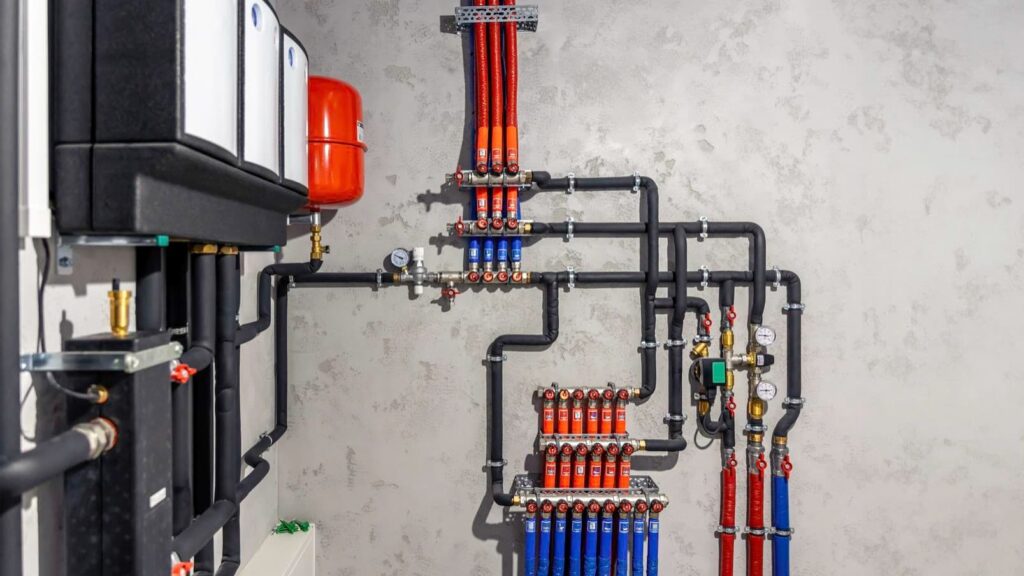Gas Leak: Why It Happens and What to Do
Gas leaks are a serious safety hazard that can lead to devastating consequences if not addressed promptly. From explosions and fires to health complications…

Choosing the right boiler is crucial when it comes to heating your home in Canada. The two main contenders are electric boilers and oil boilers. Each has its own set of advantages and disadvantages, making it important to understand how they work and which might be the best fit for your needs. In this guide, we will explore the differences, pros, and cons of electric boiler vs oil boiler systems and help you decide which option is better for your home.
To determine which type of boiler is more suited to your home, it’s essential to understand how each system operates. An electric boiler uses electricity as its primary energy source to produce heat. It passes electric current through heating elements, which heat water or produce steam. This system can deliver hot water for your taps or heating for your rooms.
On the other hand, an oil boiler burns heating oil to generate heat. This process involves igniting the oil in a burner, which heats water in a heat exchanger. The heated water or steam is then circulated throughout your home. Understanding these basic functions helps you assess which system might be more efficient and practical for your specific situation.
Electric boilers are becoming increasingly popular, especially in urban areas where natural gas is not readily available. They utilize electric heating elements to generate hot water or steam for heating. One of the standout features of electric boilers is their high energy efficiency. They can achieve nearly 100% efficiency since no fuel combustion is involved, leading to minimal energy loss.
Moreover, electric boilers are environmentally friendly as they produce no emissions during operation. This makes them a great choice for eco-conscious homeowners. They are compact, take up less space than oil boilers, and can easily fit into smaller areas. Maintenance is minimal, as they have fewer moving parts compared to their oil counterparts, reducing the likelihood of breakdowns.
Oil boilers, while less common in urban settings, are still a reliable option, especially in rural areas where natural gas is not available. These boilers consist of a burner, a heat exchanger, and safety devices to ensure safe operation. The burner ignites the oil, producing heat that warms the water in the heat exchanger. This hot water is then distributed throughout your home.
One of the main advantages of oil boilers is their ability to provide strong and consistent heat. They are particularly effective for larger homes or buildings requiring much heating power. Additionally, with the ability to store fuel on-site, homeowners can take advantage of lower oil prices when purchasing fuel in bulk.
Like any heating system, electric boilers have their own set of benefits and drawbacks.
Electric boilers come with a variety of advantages that make them an appealing choice for homeowners:
Despite their many advantages, electric boilers do have some drawbacks:
Oil boilers also come with their unique set of advantages and disadvantages.
Oil boilers offer several benefits that make them a popular heating choice:
Despite their benefits, oil boilers have drawbacks:
When deciding between an electric boiler or an oil boiler in Canada, consider several factors:
Consulting with a qualified HVAC contractor can provide additional insight tailored to your home’s specific needs.
If you live in Surrey, Langley, Richmond, or anywhere in British Columbia, consider reaching out to our expert team at TaskPro. We specialize in high-quality plumbing, heating, and handyman services at competitive prices. Our professionals can help you choose and install the best boiler for your home. Contact us today to schedule your boiler installation!
In the debate of oil versus electric heating, oil systems often have the edge in terms of heat delivery and efficiency. However, electric systems are cleaner and safer, making them suitable for many households.
While electric boilers tend to be cheaper to install, oil boilers can be more cost-effective in the long run due to lower operating costs. However, the efficiency of electric boilers often leads to reduced energy consumption overall.
Yes, converting from an oil boiler to an electric system is possible. Certified professionals can safely disconnect and remove your old oil boiler and install a new electric model, ensuring your home remains warm and comfortable.
Share this Guide
Gas leaks are a serious safety hazard that can lead to devastating consequences if not addressed promptly. From explosions and fires to health complications…
Septic tanks are a vital component of wastewater management systems, particularly in areas where municipal sewer systems are unavailable. These underground structures treat and…
Choosing the right toilet for your home is more than a simple decision; it’s an investment in comfort, efficiency, and functionality. The type of…